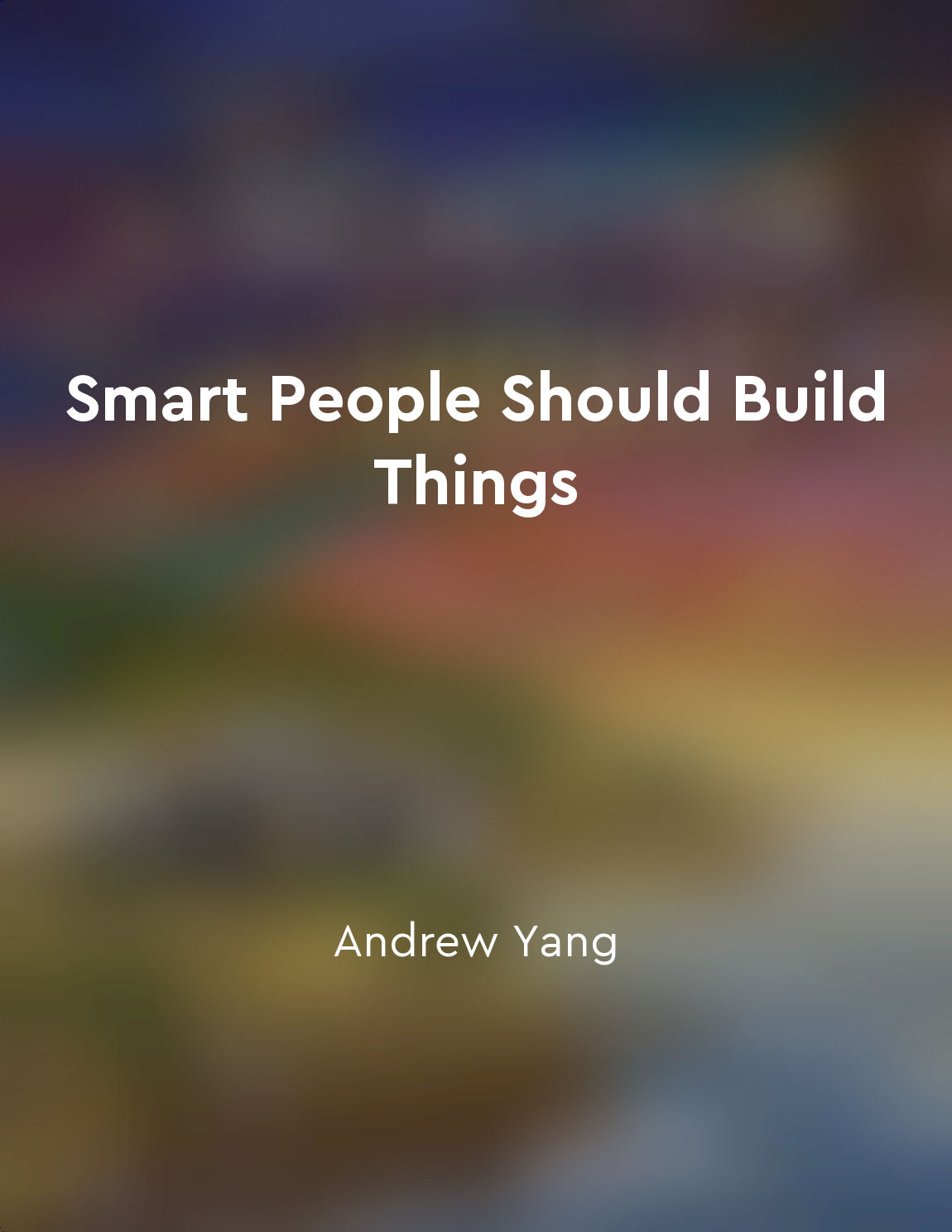Education must adapt to the changing workforce from "summary" of The Second Machine Age by Erik Brynjolfsson,Andrew Mcafee
The rapid advancement of technology is reshaping the nature of work in today's economy. As tasks that were once performed by humans are now automated by machines, the skills required in the workforce are evolving. In this new era, education plays a crucial role in preparing individuals for the changing demands of the job market. Traditional education systems were designed to equip students with the knowledge and skills needed for jobs in industrial-age economies. However, in the digital age, there is a growing mismatch between what is taught in schools and what is required in the workforce. To address this gap, education must adapt to the changing needs of the economy by focusing on developing skills that are in high demand. One way to ensure that education remains relevant is to emphasize the importance of lifelong learning. With technology advancing at a rapid pace, the skills needed in the workforce today may become obsolete tomorrow. Therefore, individuals must be prepared to continuously update their skills and knowledge to stay competitive in the job market. Moreover, education must also place a greater emphasis on teaching skills that are uniquely human and are less likely to be automated by machines. Skills such as critical thinking, creativity, emotional intelligence, and problem-solving are increasingly valuable in a world where automation is becoming more prevalent. By nurturing these skills, education can help individuals differentiate themselves from machines in the workforce.- The changing nature of work in the digital age calls for a transformation in the way education is delivered. By focusing on lifelong learning, teaching in-demand skills, and fostering uniquely human abilities, education can adapt to the evolving needs of the workforce. Only by embracing these changes can individuals thrive in the second machine age.
Similar Posts
Educational reforms seek to address disparities
Educational reforms are crucial in the effort to tackle the existing gaps and discrepancies within the educational system. Thes...
Cultivating a deep sense of selfawareness and reflection
To effectively learn and adapt in today's rapidly changing world, individuals must cultivate a deep sense of self-awareness and...
Discover your strengths
The first step in managing oneself is to discover your strengths. This may sound simple, but it is perhaps the most crucial ste...
Embracing uncertainty can lead to innovative solutions
In times of uncertainty, it can be tempting to retreat to what feels safe and familiar. However, by embracing uncertainty, we o...
A growth mindset is essential
A growth mindset is essential for individuals and organizations to thrive in today's fast-paced and constantly evolving world. ...

Engaging in creative activities can reduce stress
Engaging in creative activities, such as painting, writing, or crafting, can serve as a powerful outlet for stress reduction. W...
Artificial intelligence posed ethical dilemmas
As humans delved deeper into the realm of artificial intelligence, they encountered a myriad of ethical dilemmas that challenge...
Resilience is necessary for overcoming challenges and growing cognitive capital
Resilience serves as a critical component in the journey of overcoming challenges and expanding cognitive capital. Challenges a...

Smart people should seek out mentors and resources
Smart people understand the value of seeking out mentors and resources. They know that they cannot succeed in isolation and tha...
AI innovation accelerates technological progress
AI innovation plays a pivotal role in driving technological progress forward at an unprecedented pace. As artificial intelligen...

